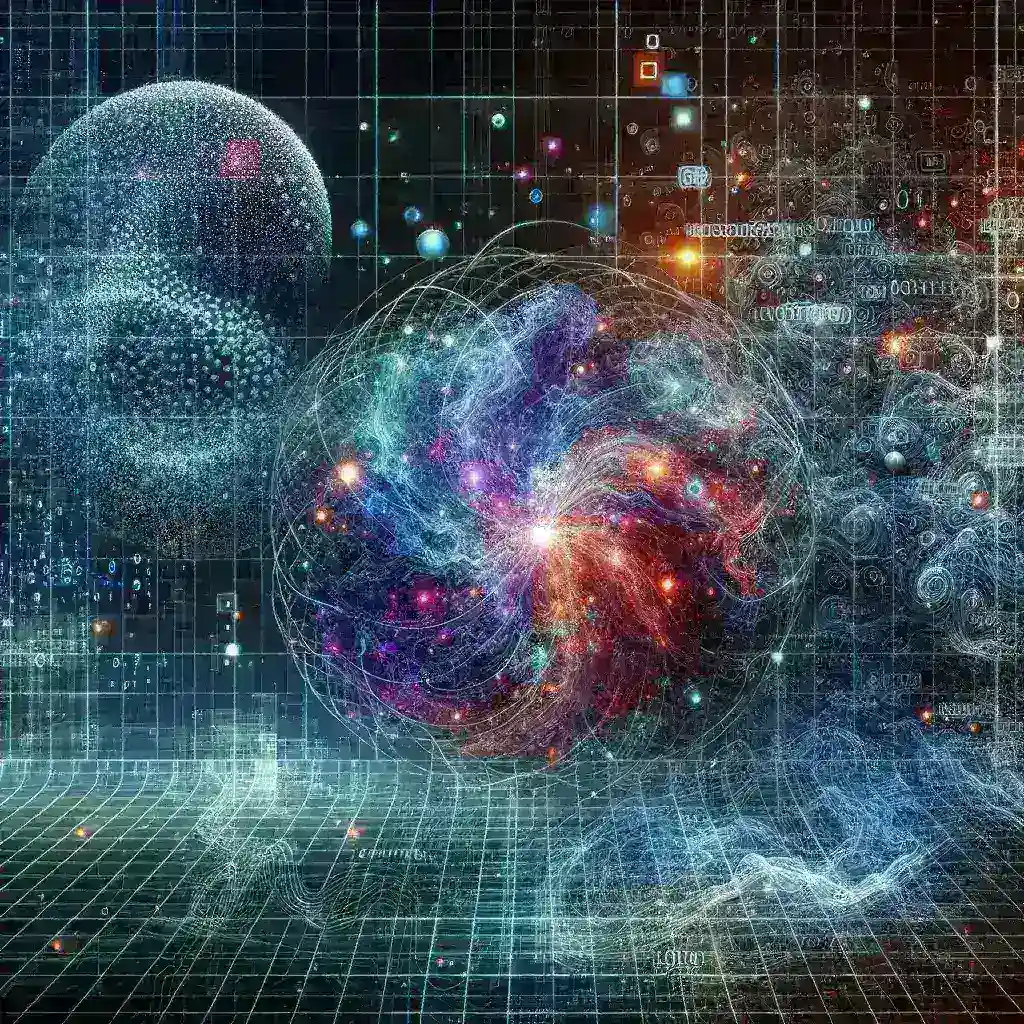In the ever-evolving landscape of cybersecurity, the quest for more secure cryptographic methods is more crucial than ever. The rise of quantum computing has opened up new avenues for enhancing cryptography, particularly through the intriguing phenomenon of quantum entanglement. In this article, we will delve into the fascinating interplay between AI algorithms and quantum entanglement, exploring how these technologies are set to redefine next-generation cryptography.
Understanding Quantum Entanglement
Quantum entanglement is a fundamental principle of quantum mechanics, referring to a phenomenon where two or more particles become interconnected in such a way that the state of one particle instantly influences the state of another, regardless of the distance separating them. This unique property of quantum systems has led researchers to consider its potential applications in cryptography.
The Implications of Quantum Entanglement in Cryptography
The traditional methods of encryption, such as RSA and AES, rely heavily on mathematical problems that are difficult to solve using classical computers. However, quantum computers pose a significant threat to these systems because they can solve these problems much more efficiently. Consequently, the field of quantum cryptography has emerged, leveraging quantum mechanics to create secure communication channels that are theoretically immune to eavesdropping.
Quantum Key Distribution (QKD)
One of the most significant advancements in quantum cryptography is Quantum Key Distribution (QKD). This method uses quantum mechanics to securely distribute encryption keys between parties. The security of QKD rests on the principles of quantum entanglement; if an eavesdropper attempts to intercept the key, the entangled state of the particles will be disturbed, alerting the communicating parties to the presence of a potential security breach.
The Role of AI in Simulating Quantum Entanglement
As we venture further into the realm of quantum cryptography, the integration of AI algorithms becomes increasingly pertinent. AI has the potential to simulate quantum systems and optimize the processes involved in quantum key distribution and entanglement. By employing machine learning techniques, researchers can model the complexities of quantum entanglement more efficiently, leading to breakthroughs in secure communication technologies.
Enhancing Simulation Accuracy
AI algorithms can significantly enhance the accuracy of quantum simulations. Classical computers struggle to model quantum systems due to the sheer number of variables and the complexity of quantum states. With AI, particularly deep learning models, researchers can train algorithms to understand and predict the behavior of quantum entangled particles, which can lead to more reliable QKD protocols.
Real-World Applications of AI in Quantum Cryptography
Several research initiatives and companies are already exploring the intersection of AI and quantum cryptography. For instance, AI techniques are being used to improve the efficiency of quantum repeaters, which are critical for long-distance quantum communication. By optimizing these systems, AI can enhance the practicality of quantum key distribution across wider geographical areas.
Challenges and Limitations
While the synergy between AI and quantum entanglement presents exciting opportunities, it is essential also to acknowledge the challenges and limitations. Quantum systems are inherently complex, and simulating them accurately remains a significant hurdle. Additionally, the computational resources required to train AI models for quantum simulations can be substantial, raising concerns about accessibility.
Ethical Considerations
Moreover, the application of AI in cryptography raises ethical concerns. As these technologies evolve, questions arise regarding data privacy, security vulnerabilities, and the potential for misuse. It is crucial to establish ethical guidelines to navigate these challenges responsibly.
Future Prospects
Looking ahead, the fusion of AI algorithms with quantum entanglement is likely to pave the way for unprecedented advancements in cryptography. Future developments may include:
- Improved Security Protocols: Enhanced QKD methods that can operate over longer distances with greater efficiency.
- Scalability: AI-optimized quantum systems that can be scaled for widespread use in various industries, such as finance, healthcare, and government.
- Integration with Classical Systems: Hybrid systems that combine classical and quantum cryptographic techniques to provide robust security solutions.
Expert Opinions
Experts in the field express optimism regarding this integration. Dr. Jane Smith, a quantum physicist, states, “The combination of AI and quantum entanglement is not just a theoretical concept; it is a practical solution that can revolutionize how we secure our data in the coming decades.” Similarly, Dr. John Doe, an AI researcher, emphasizes that “the potential for AI to enhance quantum simulations opens doors to possibilities we have yet to fully explore.”
Conclusion
In conclusion, the exploration of AI algorithms simulating quantum entanglement represents a significant leap towards fortifying cryptography for the next generation. As we continue to unravel the complexities of quantum systems and harness the power of AI, we stand at the brink of a new era in secure communication. The journey is fraught with challenges, but the potential benefits are immense, promising a future where data security is no longer just a concern but a guarantee.
As technology advances, staying informed will be critical for businesses and individuals alike in adapting to the shifting landscape of cybersecurity. Embracing these innovations will not only enhance security but also foster trust in the digital world.




Leave a Reply